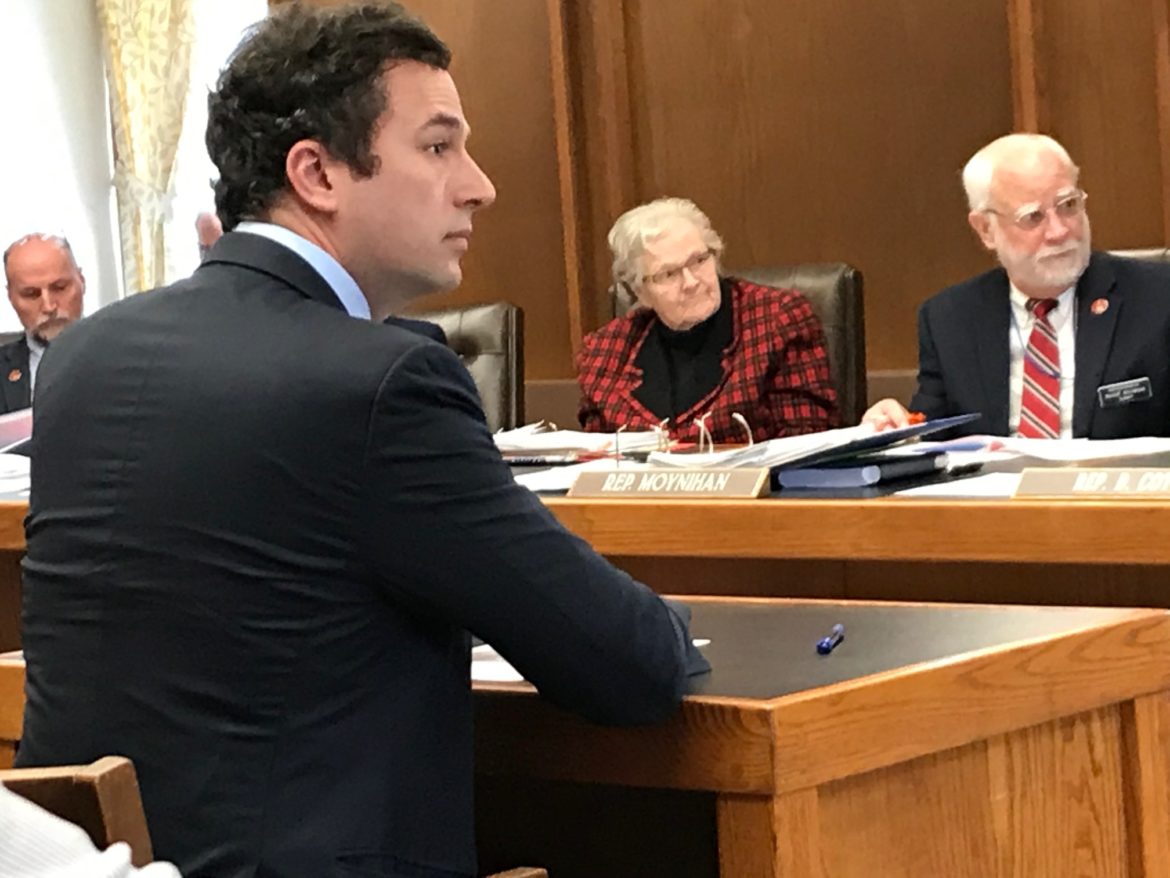By GARRY RAYNO, InDepthNH.org
CONCORD — An independent redistricting commission is needed to begin restoring faith in the Republic, a House committee was told Tuesday.
Members of the House Election Law Committee held a public hearing on House Bill 1665 to establish an independent commission to draw the state’s political boundaries in light of the 2020 census.
The bill is nearly identical to one that passed the Senate unanimously last year and the House with bipartisan support, but Gov. Chris Sununu vetoed.
“This is designed to create a level playing field,” said the bill’s prime sponsor Rep. Marjorie Smith, D-Durham. “It is a non-partisan bill. It is not Democratic or Republican. It is not right or left or liberal or conservative.”
Wayne Fuller of Concord urged the committee and lawmakers to approve the independent commission saying gerrymandering has corrupted the political system because representatives in politically safe districts do not have to listen to all their constituents, only the most radical of their party to avoid a primary.
“This endangers us in two ways. First, as I have stated, such attempts to tilt the playing field so that the will of the (minority) is completely thwarted is an assault on our Republic and the flag itself,” Fuller said. “Secondly, it corrupts not only our political process but you, the politician as well.”
The citizens are the losers in the current system, Fuller said, because they are no longer heard amid all “the noise” and that is not fair to the citizens.
“Gerrymandering has corrupted all of us,” Fuller said. “You have a chance to help restore faith in the Republic.”
Under the bill, the House and Senate leadership of both parties would choose 10 members from a list of candidates, and those 10 members would choose the final five members of the commission.
The commission would hold public hearings in all 10 counties and all of its meetings would be open to the public.
The bill contains a list of criteria the commission would use in drawing the new political boundaries for the Congressional, Executive Council, Senate and House districts.
The Legislature would have to approve the final plan. If the plan is voted down, the commission would review the reasons and revise the plan for another vote.
Although the original bill last session passed the Election Law Committee with a unanimous vote, Tuesday several Republican members were concerned the legislature would not be able to amend the plan once the commission presents its work.
Rep. Timothy Lang, R-Sanbornton, questioned if he would be giving up his constitutional responsibility to his constituents if the legislature could not change the plan.
Smith said the legislature and commission would need to work together to come up with an acceptable plan, and if not, it would revert to the state Supreme Court.
“This is no different from last year,” Smith said. “The purpose is to be fair to every voter and every citizen of the state without regard to partisanship.”
Another bill sponsor, Rep. Ned Gordon, R-Bristol, said with an independent commission you do not want the party in charge to be able to come in and say, “we will make the changes we want.”
He noted his district is gerrymandered, stretching across five towns and 40 miles of Grafton County with little commonality among the five towns.
“The vast majority of my constituents want a fair and open process for creating districts free from partisanship,” he said.
Liz Tentarelli, president of the League of Women Voters-NH, said there are gerrymandered districts in New Hampshire using as an example the district that combines Hudson and Pelham with 11 seats.
Hudson is much larger than Pelham, she noted, and 10 of the 11 representatives are from Hudson.
“Both towns deserve their own representatives,” Tentarelli said. “Not only are the candidates in Pelham disadvantaged, the voters in Pelham are disadvantaged.”
Yurij Rudensky, redistricting counsel for the Brennan Center for Justice at New York University Law School, said the bill builds on the success of work done in other states like Iowa, Maine and Vermont.
“If passed, this proposal would bring about significant positive changes,” he said. “The public should see drastic improvements in transparency and accountability and should feel more connected to representatives, improving confidence in government.
“Elected officials likewise should see more compact and cohesive
districts that make it easier to campaign, connect with constituents and
legislate according to their need,” Rudensky said. “But the benefits go beyond
improvements in politics.”
He said when independent commissions draw the political boundaries there are
more competitive elections and they hold up better when challenged in court.
The committee did not make an immediate recommendation on the bill.
Garry Rayno may be reached at garry.rayno@yahoo.com





